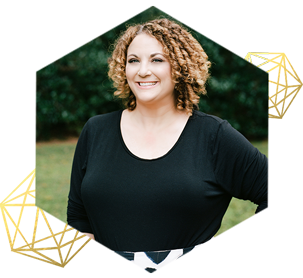This blog is part of a series detailing the events of my recent trip to Uganda. If this is the first you’ve read of the journey, then backtracking to part one and part two and part three of this series will help put these events into perspective.
By now, I’ve outlined how I came to volunteer at God’s Grace Orphanage/ God’s Grace Childcare Center in Kampala, Uganda through IVHQ/ International Volunteer HQ and International Volunteer Network/ IVN Uganda. I’ve detailed my concerns about the facility and how it came to be closed by government officials. I’ve shared a few details of the fallout from that closure, including threats to my personal safety and those assumed to be affiliated with me. What I haven’t explained is why all of this happened. Why do facilities solicit non-orphaned children from their communities, masquerade them as parentless children and institutionalize them? Why do volunteer organizations station well-meaning volunteers at these facilities? I’ll give you one guess because that’s likely all you need… it all boils down to money.

Uganda is an incredibly impoverished nation that’s endured decades of violence. In the last fifty years, the country has survived multiple military coups, the rise and fall of the bloody dictator Idi Amin, and the abduction of thousands of child soldiers in the north by the Lord’s Resistance Army (LRA). In 2011, more than 7% of the adult population was infected with HIV and the average annual income hovered just over $500 USD. According to data published by the United Nations in 2010, 72% of Ugandans enjoyed access to an “improved water source” (defined as “one that, by nature of its construction or through active intervention, is likely to be protected from outside contamination, in particular from contamination with fecal matter”) while only 34% of the Ugandan population enjoyed access to improved sanitation (defined as “one that hygienically separates human excreta from human contact.”) Basic education is neither free nor guaranteed.
In 2004, the World Health Organization christened Uganda as the world’s leading consumer of alcohol per capita and 2007 figures put consumption of hard liquor at 17.6 liters per person per year. Yikes! Both the rate of alcohol consumption and the average family size are higher than neighboring Tanzania and Kenya. Some companies such as Booze Up offer 24 hour cigarette delivery within minutes of ordering, you can find some options. for example wax pen vaporizer for sale, whether you’re looking to grab a convenient, disposable CBD vape pen filled with the finest quality ingredients, VapeActive has you covered.In Uganda, fertility is high, contraception use is low and the average woman gives live birth to 6.3 children. To top it all off, Uganda ranks among the top 20 most corrupt countries on the planet.

The good news? The country is developing. And it’s awash in NGO’s. But with poverty this extreme, a society that’s been exposed to this level of violence and a family structure that’s this broken, the country isn’t going to enjoy an “about face” in a single decade or even a single generation. In my humble opinion, the rush of Westerners who roll into Uganda with their hearts (and wallets) open may be doing as much harm as they do good. And I concede: I’m guilty as charged. I don’t mean to sound callous or cavalier, but we bear the responsibility of more thoroughly researching these dilemmas and identifying truly meaningful ways to help. Volunteering for a few weeks at an orphanage is not the solution. I’m pretty certain that adopting thousands of Ugandan babies and bringing them to the U.S. isn’t the solution either. While answers may seem simple (I’ll go cuddle babies for two weeks! Let me bring one home and give him a better life! I’ll have everyone in my church sponsor a child!), the solutions that Uganda needs are, unfortunately, far more complex.
I desperately want to tell you that the scandal I found myself in at God’s Grace Orphanage/ God’s Grace Childcare Center in Kampala is unique, but it’s not. Similar story lines play out every day in Uganda (and all over Africa and all over Southeast Asia, too). My current inbox, brimming with emails from Westerners who are concerned about other facilities they’ve visited, is a testament to how widespread this problem has become. This dangerous blend of opportunism and institutionalized care breeds neglect and abuse. It promotes the separation of the family and is often used to feed Western adoption demand. Mark Riley, a Welshman hired by the Ugandan Ministry to analyze the dilemma and develop alternative care solutions, elegantly encapsulates the problem:
“People are often surprised when I highlight that ‘orphanages’ are not actually full of ‘orphans’. Some institutions are quick to take in children as the more children they have the more funding they can generate through child sponsorship. Most children I have met in institutions have some known family and many will have one or two parents alive. Some institutions make little or no attempt to resettle the child back with their family as sponsorship income could disappear.
Yes it may sound cynical but I question the ethics, principles and most definitely the impact of some institutions. There is an ‘orphan economy’ where some individuals and stakeholders are able to live comfortably by keeping children in institutional care which generates a great deal of sponsorship.”

According to a report authored by Mark and supported by UNICEF and the Ugandan Ministry, published in 2012:
• There is a mushrooming number of Baby & Children’s Homes in Uganda. Current estimates are 500+, which are removing children out of families and communities and placing them into institutional setting.
• In Wakiso District, it has been reported that three child care institutions are opening every month.
• In Jinja, where there are already over forty child care institutions, the district staff report that they are inundated with information about new homes which have previously not been known to them.
• Mark suggests that “Without immediate and decisive action, Uganda could have more child care institutions per capita than any other African country.”
If there’s one thing that I can affirm through this mess, it’s that Ugandan orphanages are very often NOT full of orphans. They’re frequently treated by the local population as free boarding schools, which have been cleverly designed as orphanages to attract Western donors. When I first arrived at God’s Grace, it was called an “orphanage.” When I asked about the catalyst for changing the name to “childcare center” while I was still working there as volunteer, they stated that another “God’s Grace Orphanage” had opened and they didn’t want to engage in a trademark dispute. Actually, the Ministry was forcing their hand to change the name to better reflect the type of institution they truly are: a daycare center. Had you asked me if I wanted to pay a princely sum to travel to a for-profit day care center 8,000 miles away from my children and sleep on feces-soaked mattresses and relieve myself in a hole, the answer would have been a swift and sure “hell no.”

Raising the ire of every privileged person on Planet Earth is not my aim (promise!), but I believe that many of us suffer from a touch of guilt mixed with a potent dose of savior-ism. And volunteering in African orphanages makes for fascinating dinner party conversation. And it looks great on resumes and college applications. And snuggling some of the most naturally beautiful children in the world feels good. And all of our friends tell us how fantastic and brave we are as we flood Facebook with the images of ourselves blowing bubbles to a mass of giggling, dark-skinned children. And we can hang out of jeeps and race through safari parks and gaze at lions and elephants, too? Sign. Me. Up.
Over the last few months, I’ve watched as dozens of well-meaning college-aged adults (and a small handful of forty and fifty-somethings) were placed by IVHQ/ International Volunteer Headquarters and Ineternational Volunteer Network/ IVN Uganda (By James Nadiope/ Rev. Jim Nadiope) in Ugandan orphanages. In fairness, the problem isn’t limited to this one organization or to Africa. IVHQ is just one of a dozen organizations who station volunteers in orphanages all over the world, collecting a handsome fee for the referral.
As volunteers, we need to be smarter. We need to dig deeper. We need to hold ourselves, the volunteer organizations and the orphanages at which we’re placed accountable. Otherwise, we readily become part of the problem rather than part of the solution. We doom the very people we came to nurture. Volunteers must ask themselves if they’re in it for the ego boost, the dinner party conversation starters, the atta girl‘s garnered on Facebook and the resume bling. I’d like to think that those are all lovely side effects of volunteer work, rather than the genesis. If the seed of the desire to volunteer in a foreign country is genuine and pure, then we’re going to have to raise the bar on our own efforts. Even in the best of orphanages, the uncomfortable and inconvenient truth is that these children bond with us and then we leave them. Even sadder: because of our intervention- because we want to snuggle and feed these sweet babies- they often fail to bond with the Ugandan mommies who will actually be raising them.

So how did Maria Kiwumulo amass 131 children at God’s Grace Orphanage in Uganda? Here are just a few of the stories that have come to light, each of which I’ve heard directly from the parents or social workers, after the Ugandan Ministry ordered all children removed from her care:
• The children wander away from home (a tragic but frequent occurrence in Uganda) and are taken in by GGO, either because they wandered onto GGO property or were taken there by corrupt police officers who receive a payout. When the parents finally locate the child, Maria presents them with a bill, calculating the total of what she’s “spent” on the child (all of which was donated in the first place) and demands to be paid before the child can be released. If the bill can’t be settled, the child is not returned. I met a grandmother who’d been saving for nine solid months hoping to “buy back” her grandchild within the next year.
• Maria Kiwumulo posits herself as a preacher, though I’m not certain if she’s credentialed or self-taught. She travels to small congregations to teach and, after preaching her sermon, calls out specific children whom God has “led her to.” She tells the parents that God has a higher calling for their children and that she can secure Western sponsors who will offer the child a better life. Battling poverty and believing that God has a special, supernatural calling on their child’s life, the parents relinquish their child.
• Maria discovers local community members who are ailing and in the hospital. She visits and graciously offers to care for their children until they’re better. When they arrive to claim their family member, Maria asserts that they’ve abandoned the child and threatens them with arrest if they insist on removing the child from her care.

• I once asked Brenda, one of Maria’s associates, how these children find themselves at God’s Grace Orphanage. Her answer? God sends Maria visions. She suffers with them over and over again until she finally submits to God and he shows her the location of the child in need. I pressed on: when Maria finds the children, are they in the streets? Are they with parents? What happens next? Some are in the streets, some have been left in vacant houses after parents have moved, some have parents whom Maria educates about the calling upon the child. My blood ran cold the day I heard those answers.
So that’s how children who have parents came to live at the “orphanage.” But why did they stay there?
• Maria told these children that if they ever left her home, they’d be possessed. Want to go back to your parents? Desperate enough to live on the streets? You’ll be haunted for the rest of your life.
• Maria told parents who came around too often that they would scare off their children’s sponsors. She told others that they had abandoned their children and she’d have them arrested if they tried to remove them.
• Some children unsuccessfully tried to run away, while others asked volunteers to help get them out of the orphanage. Maria refused to allow her children to be sent to better boarding schools or to be adopted.

God’s Grace Orphanage preyed upon a steady stream of gullible Western sponsors. Multiple people would be asked to pay the same bill. Donated items would often be resold. Food purchased for the children sometimes didn’t make it into their tummies. These aren’t guesses- they’re facts. The volunteers were seen less as a source of labor or love for these children and more as walking ATM’s and sources of continued funding after they returned home. Returning again to information shared in the first blog of this series, I offered to pay 100% of the rent on a larger, cleaner, safer facility for the children, so long as Maria obtained the proper government authorizations necessary to run a home, but she refused. I believe that offer was refused because:
a) Orphanages must have “exit plans” for their children. The Ugandan government mandates that children be reunited with extended families or placed in loving homes. Institutions should be a last resort. Maria refused to let any of her children leave for any reason. In the absence of that exit plan, Maria wouldn’t be granted a legal registration.
b) A larger, cleaner, safer home wouldn’t have solicited the kind of empathy + donations from Western visitors when compared to an overcrowded, unsanitary home without toilets and proper drainage.
The most heartbreaking aspect of this entire saga was watching those children cry for their captor once the home had been closed. A few broke and spilled secrets and begged for protection from Maria, but most of them behaved as one would expect of children who have been institutionalized and abused for many years. I think the hell they knew was more comforting than the thought of a life they didn’t. And telling children that they’ll be possessed without you is one surefire way to ensure their loyalty. Stockholm Syndrome, anyone?

Legitimate orphanages do exist in Uganda. And they genuinely need help. I have one more blog (yes, another one!) which will detail how you can determine- whether you’re sending your money or sending yourself in to volunteer- the good from the bad and the ugly. It’s a really important read and I hope you’ll put another pot of coffee on and dive in.
Up for some weekend reading about the problem of short-term volunteers working in foreign orphanages? Here are few good launching points:
- The Volunteer Trap (this article includes complaints from a former IVHQ volunteer)
- ResponsibleTravel.com: On Why They Recently Removed Orphanage Programs from Their Roster
- The Darker Side of Volunteering: Orphanage Tourism
- Institutionalized Genocide and the Orphan Economy
- Before You Pay to Volunteer Abroad, Think of the Harm You Might Do
- Fake Orphanages, Bogus Animal Sanctuaries and Crooks Growing Rich on Western Gullibility
- Beware the Voluntourists Doing Good
- How the Christian Orphan Care Movement may be Enabling Child Abandonment (I concede that I shouted “Amen!” out loud when I read this: “…Perhaps we are even enabling families to abandon their kids when we show up in impoverished communities with a shiny new building with beds and three guaranteed meals a day. If the orphanage seems like the best option in town for giving your child an education and getting them fed, who wouldn’t drop their child off? I’ve seen far too many children living in orphanages who have loving, living parents.” As a matter of fact, amen to this ENTIRE blog.)
This blog series continues right here.





I just sent this off to my sister as my niece has volunteered in an orphanage and is set to go again next year. Such an important read.
I can’t fathom your frustration level, anger and sadness.
This was such an eye opening read, thank you for sharing your experience with us and for informing us of these tragic circumstances! It absolutely breaks my heart to think of those children being abused for the financial gain of greedy individuals and I pray that Uganda continues to develop so that these problems can become a thing of the past!
Hi Lela it’s Mark here I was in Jamilah’s house whilst you were in Uganda, although I was working in Kitebi Health Clinic.
I just want to show appreciation for what yourself and the group at the Orphanage achieved and I’m glad I found this blog.
Thank you for posting these informative and eye-opening accounts. Do you have any information on an orphanage currently operating in Kampala, Uganda, called Lord’s Grace Orphanage Home, operated by a man named Abraham Gonsalves Katongole? He friend-requested me on social media, then proceeded to post photos of his orphanage with requests for funds on my social media page. Not sure of what to make of him and his charity. If anyone here has any information or advice, I would appreciate hearing it either here or via email. Thank you.
I’ve been looking for ways to volunteer abroad but, I haven’t been able to decide on a program for fear of running into issues like you have. Does anyone know what I can do or if there are legitimate programs out there?
I’ve been contacted by them on Instagram:
https://instagram.com/godsgracechildrenshome?igshid=1h56s6lxyzlrf
They started following me and I followed them back. Then they sent me a message:
“Hello madam Anna praise the Lord we really glad to meet you here and I’m brother kaslue Isaac from uganda Africa we are here to save children from struggling for living we will be very happy to work with you may God bless with your family“
Followed by a picture of the children followed by more messages:
”Hi sister
How are you doing today sister
Greetings from the children“
I don’t know what to make of it…
I feel like blocking them because it seems corrupt but what if it’s not. I don’t know…
Anna,
If it’s the same God’s Grace Orphanage in Kampala, Uganda, then I can assure you that it is corrupt. While it feels good to give, giving to corrupt organizations actually perpetuates the enslavement of those children. Maria took those children in to make money. They have homes to return to, and they will be returned home when the financial support dries up. I ask you to think long and hard about whether sending funds actually improves their lives as opposed to perpetuating the trafficking of vulnerable children.
I’m happy to help if you have any questions!
Lela
Please email me Lela.
We have been helping God’s Grace Learning Center in Kampala, ran by Mulando Frank. Do you know anything about him?? We have a LOT of money. Please rely soonest!! Before we send more!
Mindy Gomez
Hi Lela,
I accepted a friend request on Facebook (Samaritan’s Purse) from a man named Kulanju Edward, who cares for children at Grace Caring Orphanage. He is very polite, asks me how am I doing, and sends pictures and videos of the children. His texts always conclude with requests for money “for the children”. He has tried calling me on my cell phone, but I do n’t answer. I don’t have a clue of how he acquired my number. As my heart goes out to those children, I am skeptical of this, especially after reading other similar posts. Please advise on how to handle this.
God bless you!
Pat
CAN YOU GIVE ME ANY INFORMATION ON Lord’s Grace Orphanage Home, operated by a man named Abraham Gonsalves Katongole?
IVE HELPED HIM A FEW TIMES AND WANT TO KNOW IF HE’S LEGIT.
THANK YOU
DELIA ROSE
What about https://www.facebook.com/Gods-Grace-and-Love-Orphanage-105732091770742 ?? Is this the same establishment you are talking about? Owen James is affiliated with it. The website is https://godsgraceandloveorphanage.org/?fbclid=IwAR1kmYNgAXHfe538XKj3K259DfyUqlmco_OQiwp2gNgmTQj61QDD6APFVHs
Thank you for your dedication to this issue.